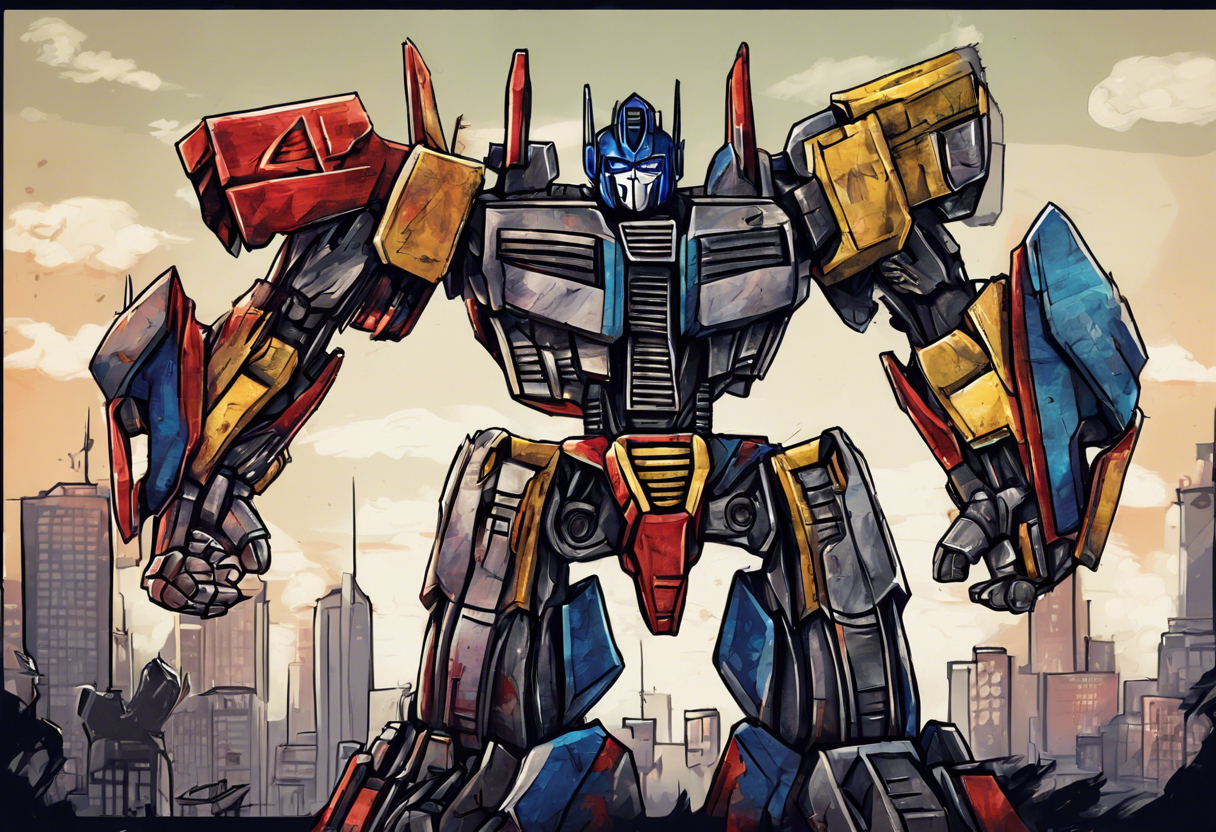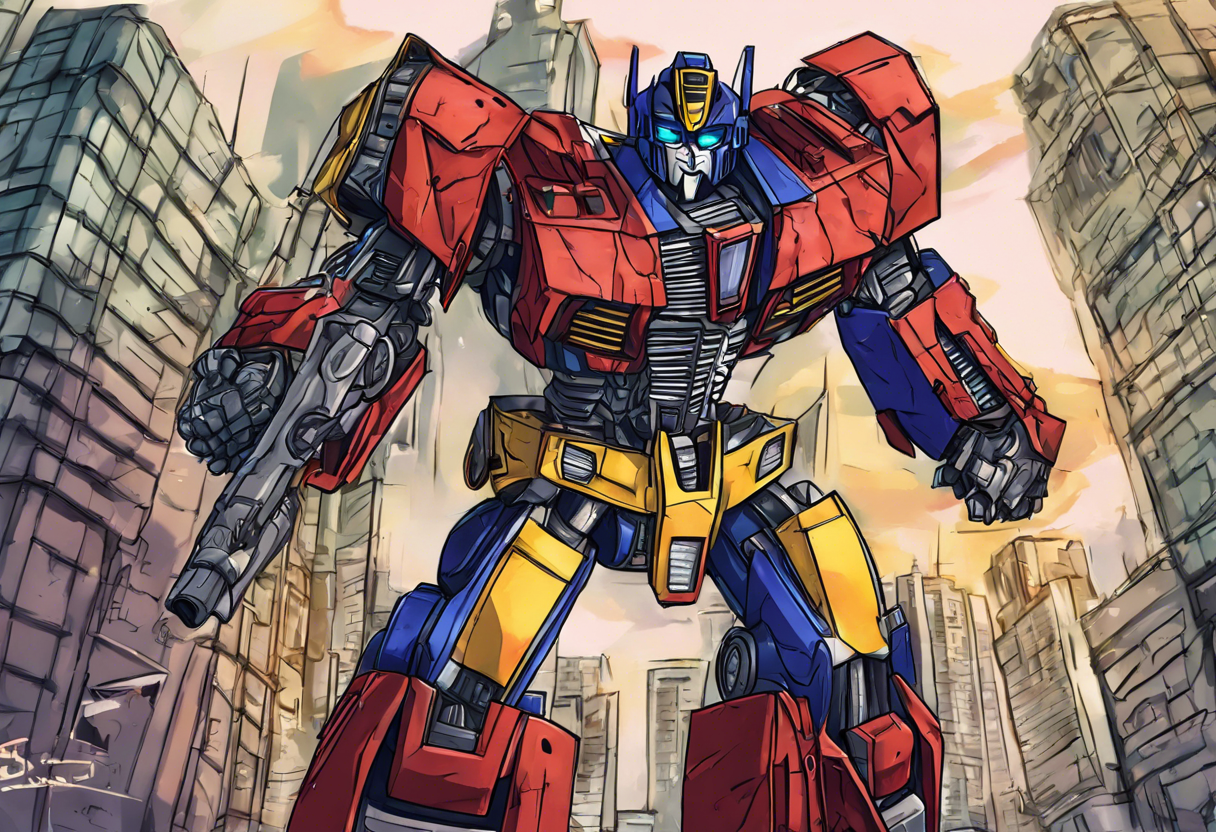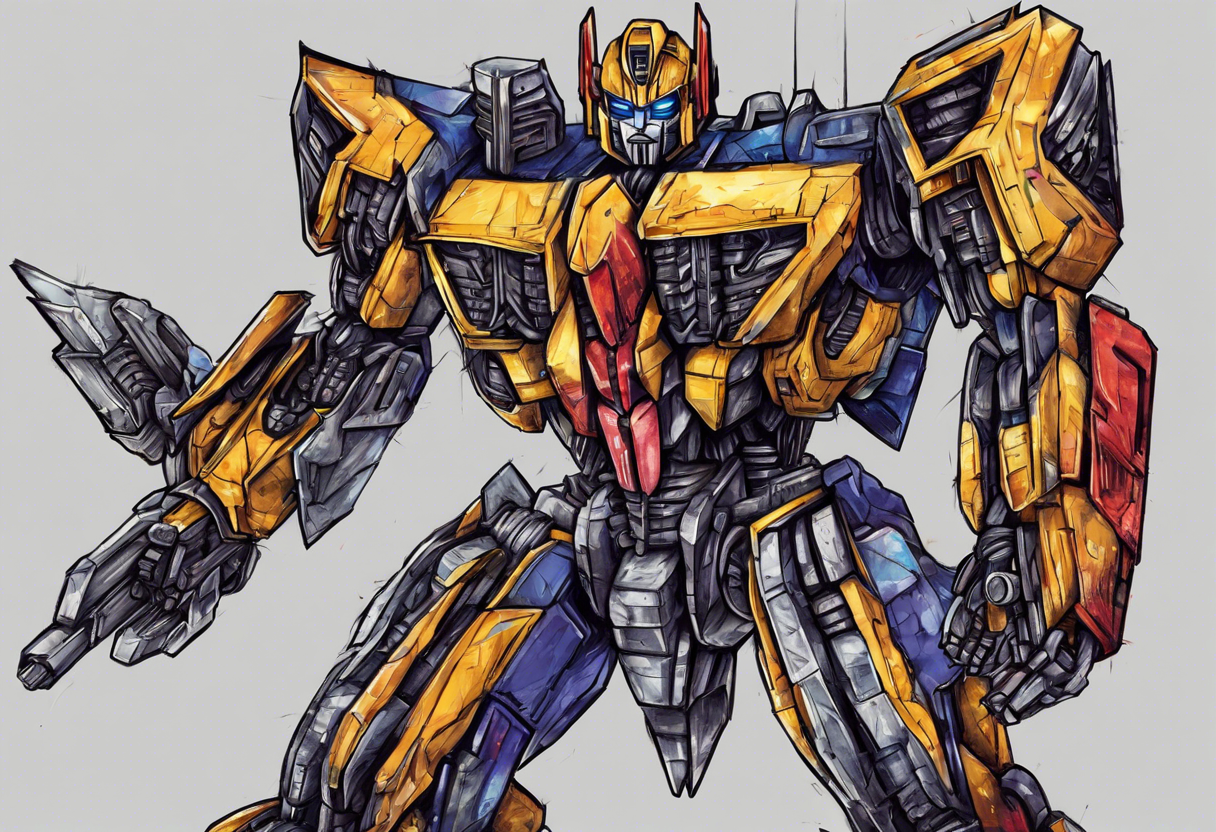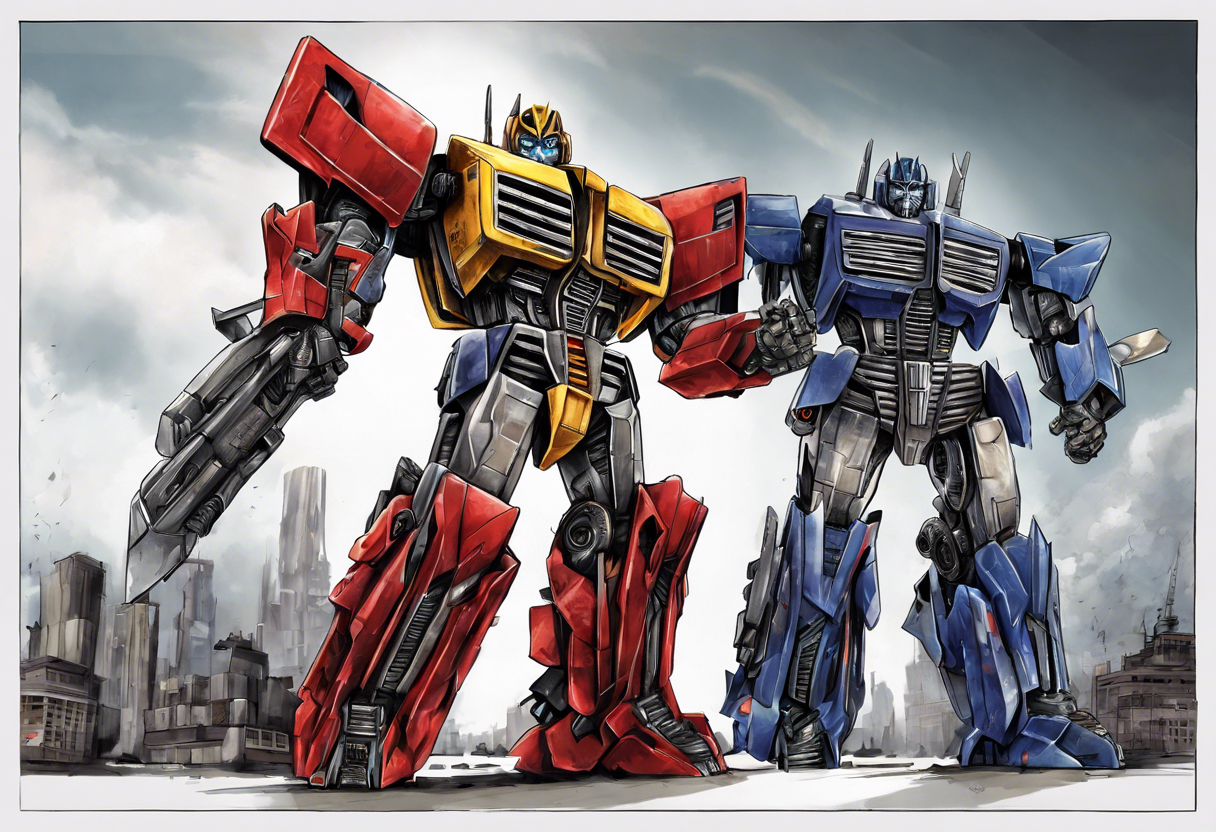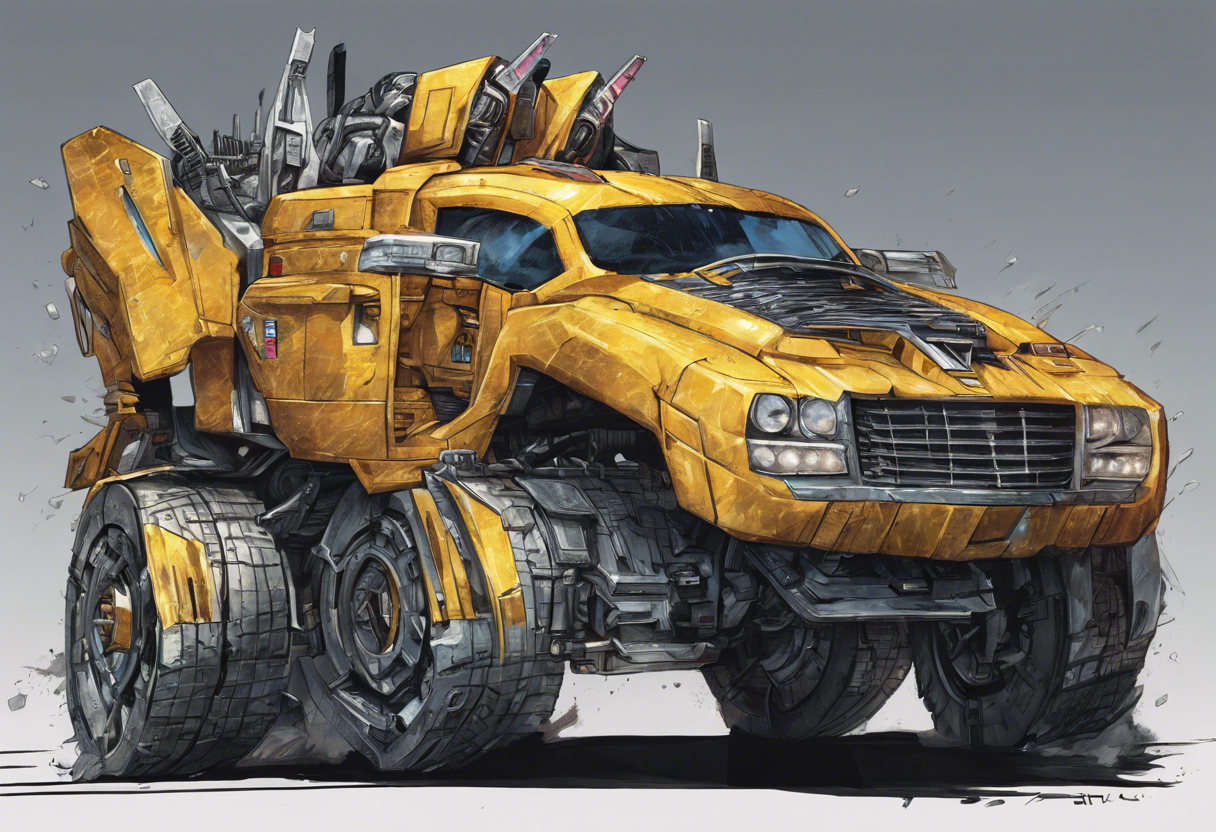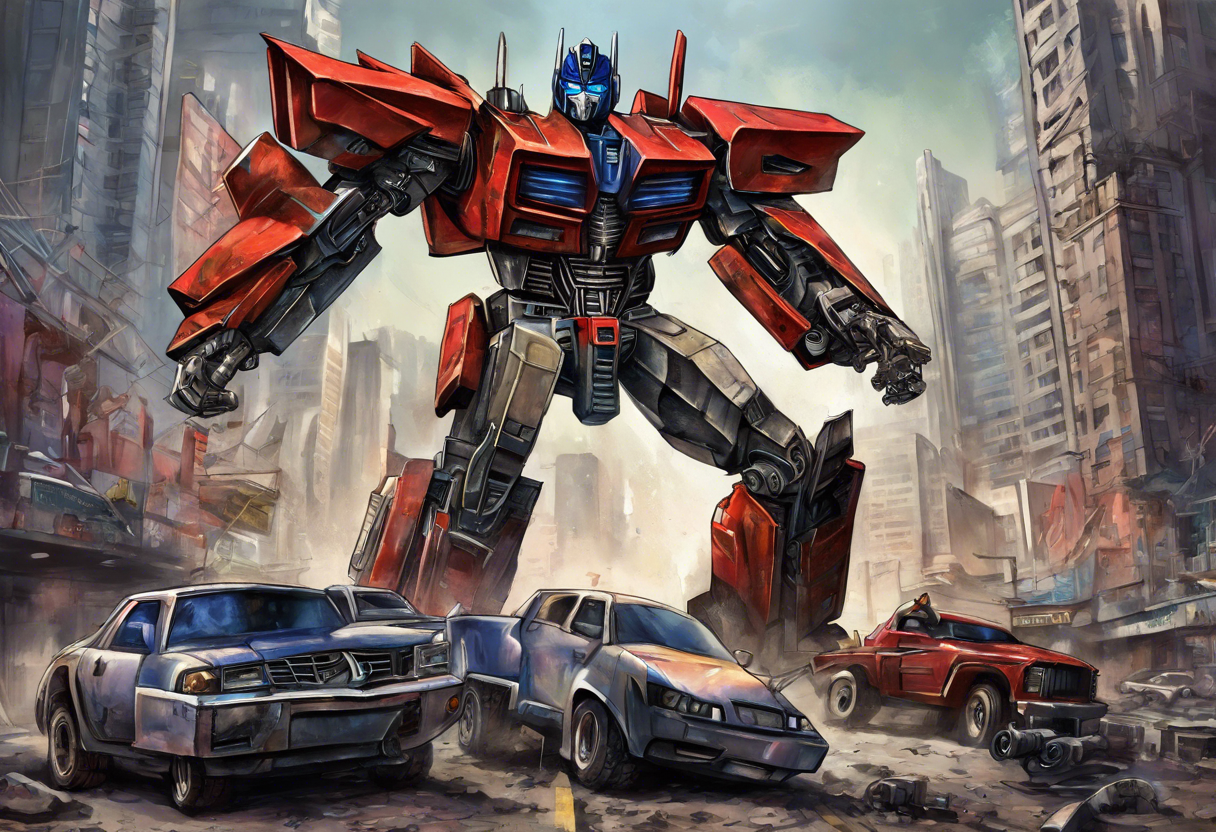Introduction
Transformers One, released in 2024, marks a significant departure from the traditional narrative of the Transformers franchise. Directed by Josh Cooley, known for his work on Pixar’s Inside Out and Toy Story 4, this animated film delves into the origins of the Transformers, specifically the early lives of Optimus Prime and Megatron on their home planet of Cybertron.
The production of Transformers One involved a collaborative effort from writers Eric Pearson, Barrer, and Ferrari, who received screenplay and story credits. When Cooley joined the project, he was provided with a comprehensive bible of the franchise’s lore by Hasbro, which helped in crafting an "epic quality" and grand scale for the film. Notably, Transformers One is distinct from previous films in the franchise as it lacks human characters, instead focusing on the Transformers themselves to inject more comedy and humanity into the story[1][5].
Plot Summary
The narrative of Transformers One is set on Cybertron, a technological world inhabited by sentient robots fueled by Energon and equipped with transformation cogs. The story begins in the underground city of Iacon, where Orion Pax, a mining robot without a transformation cog, and his friend D-16 work in an Energon mine. After a cave-in traps their colleague Jazz, Orion and D-16 rescue him, but their overseer, Darkwing, blames their superior, Elita-1, for the incident.
Orion’s curiosity leads him to sneak into an archive to watch a documentary about the Primes, the first Cybertronians created by Primus. This sets off a chain of events where Orion and D-16 discover a deactivated Trion in a cave, who reveals that Sentinel Prime betrayed the Primes to steal the Matrix of Leadership. Sentinel’s betrayal involved collaborating with Cybertron’s enemies, the Quintessons, and manipulating the miner class by removing their transformation cogs before activation[1][2].
As the story unfolds, Trion provides the group with transformation cogs and a chip containing evidence of Sentinel’s treason. However, Sentinel’s forces capture Trion and execute him, leading to a series of battles and confrontations. D-16, initially loyal to Sentinel, undergoes a significant identity crisis and eventually turns against Orion after discovering the truth about Sentinel’s actions. This conflict culminates in D-16 killing Sentinel, taking Megatronus Prime’s cog, and renaming himself Megatron. He then starts a rebellion against the newly formed Autobots, led by Optimus Prime, who is revived and empowered by the Matrix of Leadership[1][2].
Themes and Symbolism
Transformers One explores several profound themes and symbolic elements that enrich its narrative. One of the central themes is the concept of "protocol" and its insidious effects on both personal and societal levels. The film depicts Iacon as a society ruled by a dictator, Sentinel Prime, who uses protocol as a tool for misinformation and control. This theme highlights the dynamic between compliance and self-improvement, particularly through the characters of Orion and D-16. Orion represents the drive for improvement and doing what is right, while D-16’s initial compliance and subsequent rebellion illustrate the complexities of following authority versus seeking truth[2][3].
The film also uses symbolism effectively, such as the underground city of Iacon representing a society based on lies and the surface symbolizing the discovery of truth. The cave where the truth about Sentinel’s betrayal is revealed is depicted as scary, symbolizing the fear of confronting uncomfortable truths. The character of Sentinel Prime embodies the mentality of leaders who manipulate truth to maintain power, a theme that resonates with real-world issues of power and oppression[2][3].
Cultural Impact
Transformers One has made a significant cultural impact since its release. The film’s focus on the origin story of Optimus Prime and Megatron, and its exploration of themes such as power, oppression, and the struggle for truth, have resonated with audiences. The movie’s reception has been overwhelmingly positive, with a 90% Rotten Tomatoes score, indicating a critical acclaim that sets it apart from previous installments in the franchise[4].
The film’s influence extends beyond the Transformers franchise, offering a fresh perspective on animated storytelling and the use of humor and emotion in character development. It has been praised for its ability to handle mature themes while maintaining a kid-friendly tone, making it accessible to a wide range of audiences[3][5].
Critical Reception
Transformers One has been well-received by both critics and audiences. Critics have praised the film for its originality, humor, and thematic depth. The decision to focus on the Cybertronian origin story and the early friendship between Optimus Prime and Megatron has been particularly commended. The film’s critical success is a testament to the need for change within the Transformers franchise, which had been criticized for its chaotic and less coherent narrative in previous live-action films[4][5].
However, some viewers might have differing interpretations of the characters’ motivations and the film’s themes. For instance, D-16’s transformation into Megatron is driven by shame and a sense of betrayal, which could be seen as either a compelling character arc or a simplistic portrayal of villainy. Despite these potential controversies, the overall reception of Transformers One has been positive, highlighting its contribution to the franchise’s evolution[2][3].
Legacy
Transformers One is poised to leave a lasting legacy in the world of animation and the Transformers franchise. By offering a fresh and original take on the origin story of iconic characters, the film has set a new standard for storytelling within the franchise. Its emphasis on character development, humor, and thematic depth has inspired a new approach to animated films, particularly those based on established franchises.
The film’s influence can be seen in its potential to shape future installments of the Transformers series, encouraging a more nuanced and character-driven narrative. Additionally, Transformers One serves as a model for how animated films can tackle complex themes in an engaging and accessible manner, making it a significant contribution to cinematic history[3][5].
References
- https://en.wikipedia.org/wiki/Transformers_One
- https://filmcolossus.com/transformers-one-explained-2024
- https://nyunews.com/arts/film/2024/10/07/transformers-one-review/
- https://screenrant.com/transformers-one-rotten-tomatoes-better-live-action-franchise-change/
- https://www.dailycardinal.com/article/2024/10/transformers-one-is-the-origin-story-we-didnt-ask-for-but-are-pleased-to-have?ct=content_open&cv=cbox_featured

